Related Research Articles
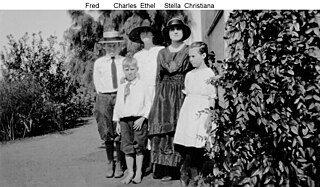
Frederick Benjamin "Fred" Gipson was an American writer and screenwriter. He is best known for writing the 1956 novel Old Yeller, which became a popular 1957 Walt Disney film. Gipson was born on a farm near Mason in the Texas Hill Country, the son of Beck Gipson and Emma Deishler. After working at a variety of farming and ranching jobs, he enrolled in 1933 at the University of Texas at Austin. There he wrote for the Daily Texan and The Ranger, but he left school before graduating to become a newspaper journalist.

The High Chaparral television series, which was broadcast on NBC from 1967 to 1971, is an American Western action adventure drama set in the 1870s. It stars Leif Erickson and Cameron Mitchell. The series was made by Xanadu Productions in association with NBC Productions, and was created by David Dortort, who had previously created Bonanza for the network. The theme song was written and conducted by Bonanza scorer David Rose, who also scored the two-hour pilot.
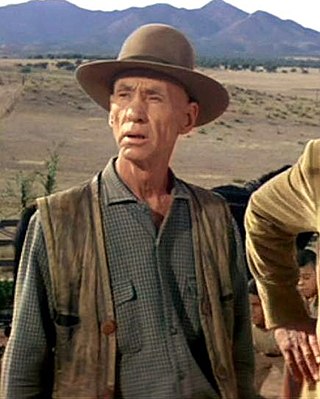
Hank Worden was an American cowboy-turned-character actor who appeared in many Westerns, including many John Ford films such as The Searchers and the TV series The Lone Ranger.

Red River Range is a 1938 "Three Mesquiteers" Western film starring John Wayne, Ray Corrigan, Max Terhune, and Polly Moran. Wayne played the lead in eight of the fifty-one movies in the popular series. The director was George Sherman.
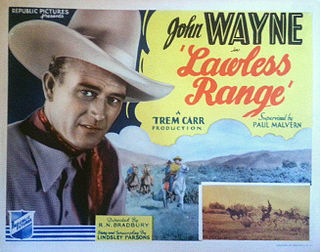
Lawless Range is a 1935 American Western film released by Republic Pictures, directed by Robert N. Bradbury and starring John Wayne. He appears as a "singing cowboy" in the film, with his singing voice dubbed by Glenn Strange, who later found lasting film fame himself as Frankenstein's Monster.
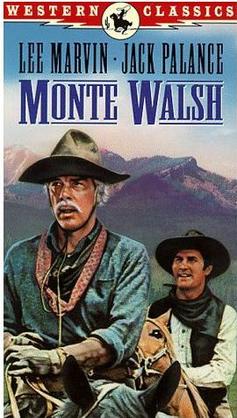
Monte Walsh is a 1970 American Western film directed by cinematographer William A. Fraker starring Lee Marvin, Jeanne Moreau and Jack Palance. The name "Monte Walsh" is taken from the title of a 1963 western novel by Jack Schaefer, but the film has little to do with the plot of Schaefer's book. The film was set in Harmony, Arizona. The story has elements of a tragedy. The song played over the opening credits is "The Good Times Are Comin' " by Mama Cass, with music and lyrics by John Barry and Hal David.
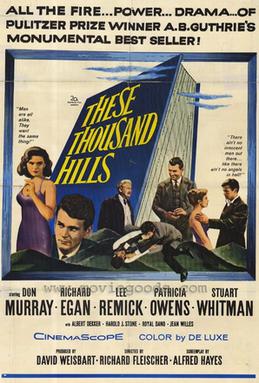
These Thousand Hills is a 1959 American Western film directed by Richard Fleischer and starring Don Murray, Richard Egan, Lee Remick, Stuart Whitman and Patricia Owens. The screenplay was written by Alfred Hayes. It is based on the novel of the same name by A. B. Guthrie Jr. Filming took place in Sierra de Órganos National Park in the town of Sombrerete, Mexico.

The Wild and the Innocent is a 1959 American CinemaScope Western film directed by Jack Sher and starring Audie Murphy and Sandra Dee as two inexperienced young people who get into trouble when they visit a town for the very first time. The film was the final Universal-International film shot in CinemaScope.

Springtime in the Rockies is a 1937 American Western film directed by Joseph Kane and starring Gene Autry, Smiley Burnette, and Polly Rowles. Written by Gilbert Wright and Betty Burbridge, the film is about a ranch owner who brings a flock of sheep into cattle country and faces the opposition of local ranchers with the help of her ranch foreman.
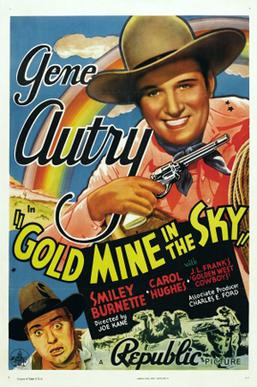
Gold Mine in the Sky is a 1938 Western film directed by Joseph Kane and starring Gene Autry, Smiley Burnette, and Carol Hughes. Based on a story by Betty Burbridge, the film is about a singing cowboy and ranch foreman who, as executor of the owner's will, must see that the daughter and heiress does not marry without his approval.
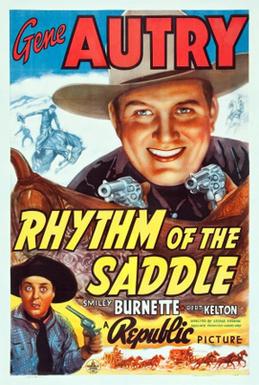
Rhythm of the Saddle is a 1938 American Western film directed by George Sherman and starring Gene Autry, Smiley Burnette, and Pert Kelton. Written by Paul Franklin, the film is about the foreman at a ranch owned by a wealthy rodeo owner who will lose her rodeo contract unless sales improve.

The Singing Cowboy is a 1936 American Western film directed by Mack V. Wright and starring Gene Autry, Smiley Burnette, Lois Wilde and Lon Chaney Jr. Based on a story by Tom Gibson, the film is about a cowboy who decides to sing on television in order to raise money for the orphaned daughter of his former boss who was murdered.

Mountain Rhythm is a 1939 American Western film directed by B. Reeves Eason and starring Gene Autry, Smiley Burnette, and June Storey. Based on a story by Connie Lee, the film is about a cowboy who organizes his fellow ranchers to oppose an Eastern promoter's land grab scheme.
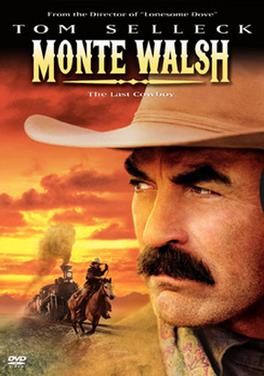
Monte Walsh is a 2003 American Western television film directed by Simon Wincer and starring Tom Selleck, Isabella Rossellini, and Keith Carradine. It was adapted from Jack Schaefer's 1963 novel Monte Walsh. This film is a remake of the 1970 Monte Walsh film that starred Lee Marvin.

Back in the Saddle is a 1941 American Western film directed by Lew Landers and starring Gene Autry, Smiley Burnette, and Mary Lee. Written by Richard Murphy and Jesse Lasky Jr., the film is about a singing cowboy who attempts to bring peace between ranchers and the operator of a copper mine whose chemicals are poisoning the area's water supply. The film features several of Autry's hit songs, including "Back in the Saddle Again", "I'm An Old Cowhand", and "You Are My Sunshine".

Storm over Wyoming is a 1950 Western film directed by Lesley Selander and starring Tim Holt and Richard Martin.
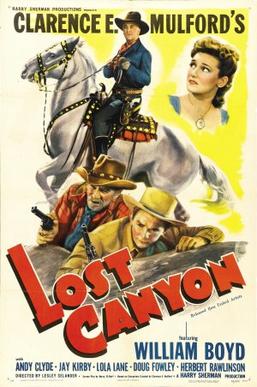
Lost Canyon is a 1942 American Western film directed by Lesley Selander and written by Harry O. Hoyt. The film stars William Boyd, Andy Clyde, Jay Kirby, Lola Lane, Douglas Fowley and Herbert Rawlinson, is a remake of Rustlers' Valley (1937). The film was released on December 18, 1942, by United Artists.
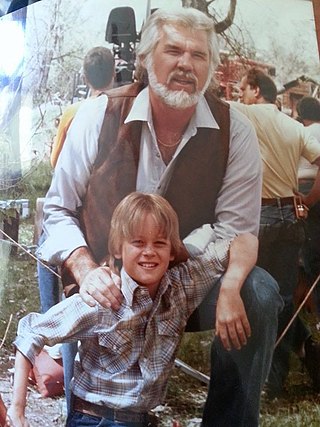
Wild Horses is a 1985 American Western television film directed by Dick Lowry and starring Kenny Rogers and Pam Dawber. It originally premiered on CBS on November 12, 1985.

The Phantom City is a 1928 American silent Western film directed by Albert S. Rogell and written by Adele Buffington and Fred Allen. The film stars Ken Maynard, Eugenia Gilbert, James Mason, Charles Hill Mailes, Jack McDonald and Blue Washington. The film was released on December 23, 1928, by First National Pictures.

The Longhorn is a 1951 American Western film directed by Lewis D. Collins and starring Wild Bill Elliott, Myron Healey, and Phyllis Coates. It was shot at the Iverson Ranch. It was remade as the 1956 film Canyon River.
References
- ↑ "Mustang (1959) - Peter Stephens | Synopsis, Characteristics, Moods, Themes and Related | AllMovie".
- ↑ Pitts, Michael R. (2013). Western movies : a guide to 5,105 feature films (2nd ed.). Jefferson, N.C.: McFarland & Co. ISBN 978-0-7864-6372-5. OCLC 796760318.